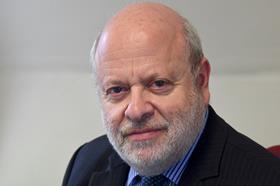The end of the year is the traditional time to review what has just happened, and speculate on consequences for the year ahead. Here are some of the most important developments in 2022.
Public sector strikes
It was the year of three prime ministers, and aggressive inflation. Yet, in relation to solicitors’ legal aid pay and conditions, next to nothing changed, as leader-saviours moved in and out of Downing Street, and the wig of the lord chancellor passed from head to head. During a time of public sector strikes, the barristers struck and we didn’t. They ended up with 15%, and we with 9%.
The government says over and over in the media that it respects the decisions of independent pay review bodies. But it didn’t respect the recommendations of the Bellamy independent review of criminal legal aid. I scream that at the radio when yet another minister trots out the line. But nothing stirs.
In the new year, the Law Society is going to have to think about serious alternatives, because year after year of refused demands should tell us that we are hitting our heads against a brick wall. We should not let the criminal defence sector collapse because of government intransigence (that’s the polite word for the government’s behaviour).

Russian invasion
To the shock of no one who had been reading parliamentary and NGO reports over the last few years, the Russian invasion suddenly shone a light on how some Russian money had been corrupting our society over the last few years. For instance, through abusive lawsuits in our courts to bankrupt and silence critics, or by buying up assets with money that was stolen or gained through corruption and violence.
Equally suddenly, our regulator, the SRA, which had been silent about this behaviour, though others had been stridently calling it out for years, became aware of the bandwagon bearing down towards it, threatening to knock it over, and jumped on to save itself. So we had the warning notice on SLAPPs plus the investigation of over 20 law firms, and guidance on Russian sanctions. (The SRA has in general not seemed in charge of events this year: for instance, it repeatedly refused to extend post-six year run-off cover, and then agreed to take charge of it; and it was blindsided by the request from CILEX to take its members into regulation alongside solicitors.)
One consequence of the Russian invasion is that it has put into sharp focus a question which troubles many lawyers globally, over a range of issues: where does the lawyer owe a primary duty, to the client or to the public interest? This short article is not the place to solve that dilemma, but merely to remark that the rhetoric will continue to fly over the barricades in the next year, too ( ‘We represent regardless of political fashions’ hurling brickbats against, and receiving them from ‘Do not enable harm to others’).
The Law Society president has made the question of ethics one of the themes of her presidential year. An important background is that the preamble to the SRA Principles states that, where the principles conflict, our primary duty is in favour of that part of the public interest which governs us, such as the rule of law and public confidence in our profession.
Heatwaves, floods, droughts
This was the year when there appeared to be a change in attitude to the relationship between climate change and the law. The number of lawyers saying ‘the science is not settled’ and ‘this is just another political fad, nothing to do with us’ seems to be shrinking, while acceptance that lawyers have a role to play is growing. Or is this just wishful thinking?
Of course, many lawyers in large law firms need no persuading, because they are advising on climate change daily, for instance on compliance and reporting duties placed on their clients.
The see-saw in attitudes will continue for a while. This year also saw republican senators write to over 50 large law firms threatening them and their clients with anti-competition lawsuits for ‘participating in climate cartels and other ill-advised ESG schemes’, which the senators consider inimical to the US energy sector.
And yet a number of bars, including the Law Society, are working on guidance for their lawyers to take account of concerns around climate change.
As the floods and heatwaves grow, so will this topic.
Death of the Queen
The monarchy is above all a symbolic institution, and the symbolism of its renewal through the ascension of King Charles lll, whatever the monarchy’s continuing troubles, is a hope that our own troubled legal institutions – the crumbling courts, the gasping legal aid system, the unforgivable delays and inequalities in access to justice – may themselves survive their current dangerous condition, and find some improvement in the new year.
Jonathan Goldsmith is Law Society Council member for EU & International, chair of the Law Society’s Policy & Regulatory Affairs Committee and a member of its board. All views expressed are personal and are not made in his capacity as a Law Society Council member, nor on behalf of the Law Society































1 Reader's comment